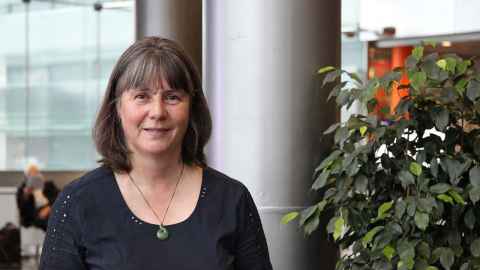Dr Lesley Gardner
Dr Lesley Gardner is an associate professor in information systems in the Department of Information Systems and Operations Management (ISOM). Lesley’s research covers the areas of digital citizenry and computer-mediated learning, from which she has published over 120 articles and papers in journal and conference proceedings. We asked Lesley to tell us a bit more about her research and why it’s important.

Tell us a bit about your research
My research focuses on two areas: digital citizenry and computer-mediated learning. Digital citizenry is an overarching term that observes and investigates different aspects of industry, society, and individuals’ interactions in the digital world. My co-researchers and I are involved in various research activities to describe the notion and different aspects of digital citizenry. We have successfully attracted research funding and publishing papers and are conducting three international panels to garner feedback from fellow researchers in the field.
My computer-mediated learning research revolved around the application of learning theory to aspects of tertiary education. Over the last 25 years, I have investigated and reported on a range of issues, from developing learning management systems to different electronic intervention strategies to assist deep learning outcomes. Again, I and my co-researchers have been successful in attracting research funding and successfully publishing the results.
Why is your research important
As we accelerate into digital transformation in the social, work and governance space, it is vital that we must understand the impact (positive and negative) that this movement is having. As we recognise these issues more deeply, we can provide input into the ongoing debate around digital inclusivity, literacy, and behaviour, to highlight a few. More technically, it is essential to be at the forefront of the debate around how we manage knowledge sustainably online regarding accessibility, reliability, and governance.
Computer-mediated learning significantly influences student learning; we are aware of student learning behaviours that positively or negatively impact current university teaching and assessment. Here, we can provide advice on blended learning, the use of different technologies and the impact of learning strategies. In terms of assessment, we can also advise on technologies to streamline assessment whilst improving individualised feedback. In doing this research, I also participate in international curriculum discussions leading to the publication of the latest international curriculum models for Information Systems at undergraduate level.